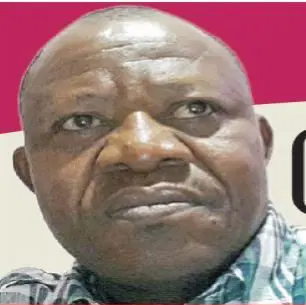Over the weekend, an event brought a smile to my face as Civil War leader, General Yakubu Gowon (PhD), celebrated his 90th birthday in grand style. What made the occasion even more remarkable was the presence of General Olusegun Obasanjo (PhD) beside him. It was a rare sight, given that Gowon and Obasanjo usually avoid each other. Gowon sees Obasanjo as arrogant, while Obasanjo views Gowon as lacking decisiveness.
Gowon was the Supreme Commander during the Biafra-Nigeria War (1967-1970), and Obasanjo was one of the generals involved in the coup that overthrew Gowon in 1975, ultimately leading to his own rise to power.
As someone who witnessed both of their reigns, I can say that I am the “posterity” that will judge them. I was a young child when Gowon came into power, and the civil war disrupted my education. When Obasanjo assumed leadership, his Universal Primary Education (UPE) policy allowed me to continue my studies through free secondary education.
However, I see both leaders as “puppets” in the hands of greater powers, particularly the influence of Great Britain and the Sokoto Caliphate Establishment. After the 1966 coup, Gowon, a young officer fresh from military training abroad, took power. Despite senior officers like Col. Hassan Usman Katsina being more qualified, the disarray in the Northern political leadership allowed a Northern Christian like Gowon to rise. Yet, during his rule, Gowon rarely made decisions independently. His policies were shaped by British interests, the Caliphate, and top bureaucrats.
A notable example of this was Gowon’s reversal of the Aburi Accord, which pushed the country into civil war. Another was the strategic creation of 12 states, which helped isolate the Igbo and thwart their independence aspirations. Though this move appeared to create a balance between the North and South, with six states each, the North quickly returned to its dominance in future state formations, leaving the Igbo marginalized.
Gowon also tolerated war crimes during the conflict, such as the Asaba massacre, and implemented harsh policies against the Igbo after the war, including the starvation strategy advised by Obafemi Awolowo and the confiscation of Igbo properties. These policies favored the North and West, deepening Nigeria’s post-war divisions.
While the Western world employed initiatives like the Marshall Plan to rebuild war-torn Europe, Nigeria’s approach after the Civil War was punitive toward the Igbo, despite the “No Victor, No Vanquished” rhetoric. Gowon’s rule contributed to a long-standing marginalization of the Igbo, which continues to affect the country today.
However, Gowon deserves credit for his efforts to end the war without inflicting major harm on civilians. Under British pressure, he sought not only to win the war but also to “win the peace.” By 1969, figures like Dr. Nnamdi Azikiwe had returned to Nigeria, signaling the end of the secessionist movement. The war concluded with a sense of reconciliation on the surface, but beneath it, the policies of the “winners” maintained an ongoing, silent conflict against the Igbo.
Despite his flaws, Gowon remained one of Nigeria’s least corrupt military rulers. He operated development plans that allowed him to use the country’s oil wealth to build lasting infrastructure. His downfall came when he extended the date for his handover to civilians in 1975, providing an opening for his eventual overthrow.
Since his return from exile, Gowon has distanced himself from Nigerian politics, dedicating himself to religious and peacebuilding efforts. Unlike Gowon, Obasanjo is still deeply involved in political discourse.
Let’s discuss Obasanjo’s legacy next Wednesday.

